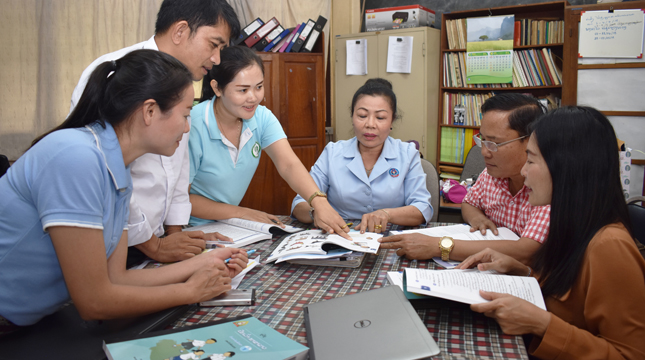
How can you study successfully when you have little or no understanding of the language of instruction? This is a reality faced by many children in Laos when they start school
Lao is the official language of instruction. All textbooks, educational materials and teaching are in Lao language. Yet 38% of the children entering primary school do not have Lao or a dialect of Lao as their mother tongue. Learning to speak Lao is a priority for those students who start school with limited or no ability to speak Lao. Without the ability to speak Lao, students struggle to understand their teacher and learn effectively. Research worldwide also consistently shows that children who start school without being able to speak the language they are learning to read and write struggle to develop literacy skills needed to help them succeed at school. Here in Laos, recent national assessments show that children who start school with a limited ability to speak Lao are under-performing at school compared to their Lao-speaking peers.
To address this issue, the Research Institute for Educational Sciences, with the support of BEQUAL and funding from the Australian government and the EU, has decided to pilot a Spoken Lao Program for children entering Grade 1. It targets children who do not speak Lao as a first language and who are not frequently exposed to Lao as a second language in their wider community. The program consists of an additional hour of instruction of spoken Lao per day to support and reinforces the content of the 2 hours of Lao literacy instruction they receive each day.
In the additional hour children undertake activities which develop their listening and speaking skills as well as practice of new letter sounds to which they are being introduced in their Lao literacy lessons. In line with the active learning principles underpinning the new curriculum, children learn through games, role plays and story-telling techniques.
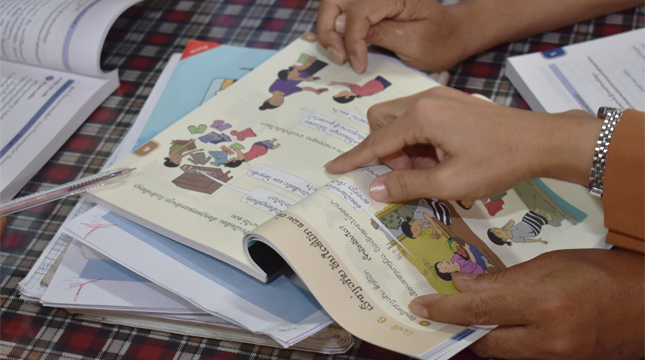
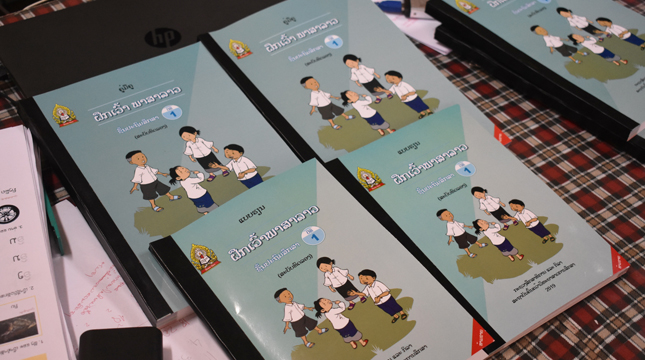
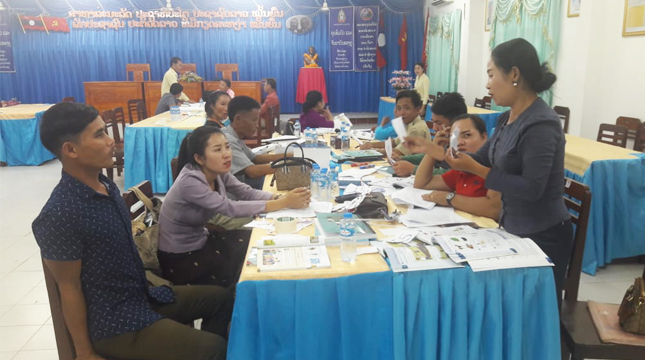
The Spoken Lao Program will be piloted in 40 primary schools throughout the 2019-20 school year. Schools with a high proportion of ethnic students with limited or no exposure to Lao at home or in their communities were selected to take part in the pilot. The schools are located in the provinces of Phongsaly, Khammouane, Salavan and Bolikhamxay. A further 40 primary schools with similar characteristics in the same provinces will serve as a comparison base.
To establish if the Spoken Lao pilot program has a positive impact on Lao language literacy, all children in pilot and comparison schools will be assessed through an Early Grade Reading Assessment tool at the start of Grade 1 and again towards the end of the school year. Teachers and principals in the 40 schools who will pilot the Spoken Lao Program, as well as pedagogical advisors who will support these teachers, received a two-day training in August. This prepared them to introduce this program at the start of the new school year in September.
The results of the pilot will help inform the Ministry of Education and Sports primary school policy and curriculum development. If the results of the pilot indicate that adding Spoken Lao lessons has a positive impact on literacy development, wider implementation of the program can be considered.
Each year September 8th marks UNESCO’s International Literacy day, raising awareness globally on the issues surrounding adult and child literacy. This year, we put the spotlight on the Spoken Lao Program which is specifically addressing the literacy challenge faced by children from ethnic and remote communities.
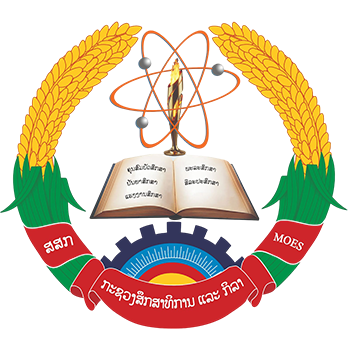


 ພາສາລາວ
ພາສາລາວ